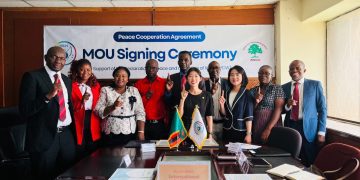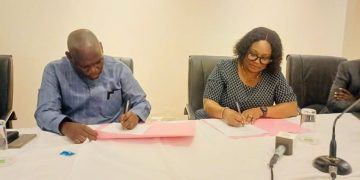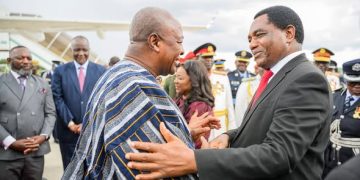📍 Cairo, Egypt – 25th February 2025
As the state visit to Egypt concludes, President Hakainde Hichilema reflects on the remarkable experiences and lessons learned from one of the world’s most iconic heritage sites—the Great Pyramids of Giza. Standing tall for nearly 5,000 years, these ancient structures are not only a testament to human ingenuity but also an enduring symbol of Egypt’s historical and cultural legacy. They are among the last surviving wonders of the ancient world, drawing millions of tourists from all corners of the globe.
For Zambia, the visit held particular significance. Egypt’s success in preserving and promoting its heritage through tourism offers invaluable insights that Zambia can apply to its own rich cultural and natural resources. By protecting and utilising heritage sites, Zambia has the opportunity to bolster its tourism sector and promote sustainable development. As the world becomes more interconnected, tourism is an increasingly powerful tool for economic growth, and Zambia stands to benefit immensely from capitalising on this potential.
President Hichilema spoke with admiration of the vision and engineering brilliance that led to the creation of the Great Pyramids, an achievement that required immense foresight and planning. This spirit of innovation continues to shine through in modern Egypt, particularly with the development of the New Administrative Capital in Cairo. The project is an ambitious example of forward-thinking infrastructure, aimed at modernising the country while honouring its history.
Inspired by this drive for progress, President Hichilema emphasised the importance of strengthening Zambia’s own infrastructure through international collaboration. He announced that Zambia and Egypt have already signed several agreements aimed at advancing Zambia’s infrastructure ambitions, with plans for continued cooperation in the future. This partnership will help propel Zambia’s development forward and create new opportunities for the country’s citizens.
In addition to infrastructure, the state visit saw significant progress in key sectors such as agriculture, tourism, energy, and business. Over 40 Zambian companies participated in the Egypt-Zambia business forum, marking a crucial step in enhancing trade and fostering economic partnerships between the two nations. These collaborations are expected to open new doors for Zambia, creating jobs and boosting the economy.
As the Zambian delegation prepares to return home, President Hichilema calls upon all citizens to continue supporting the efforts underway to bring prosperity to the country. He emphasised the importance of unity, prayer, and collective effort in achieving the goals set during the visit, underscoring that the future of Zambia depends on the active participation of all its people.
This state visit has been a defining moment in Zambia’s foreign relations and development strategy. The lessons drawn from Egypt’s achievements, paired with the promising partnerships formed during the trip, signal a bright future for Zambia—a future built on collaboration, innovation, and sustainable growth.
What are your thoughts on how Zambia can harness its heritage to boost tourism and development? Share your ideas with us in the comments below!








































